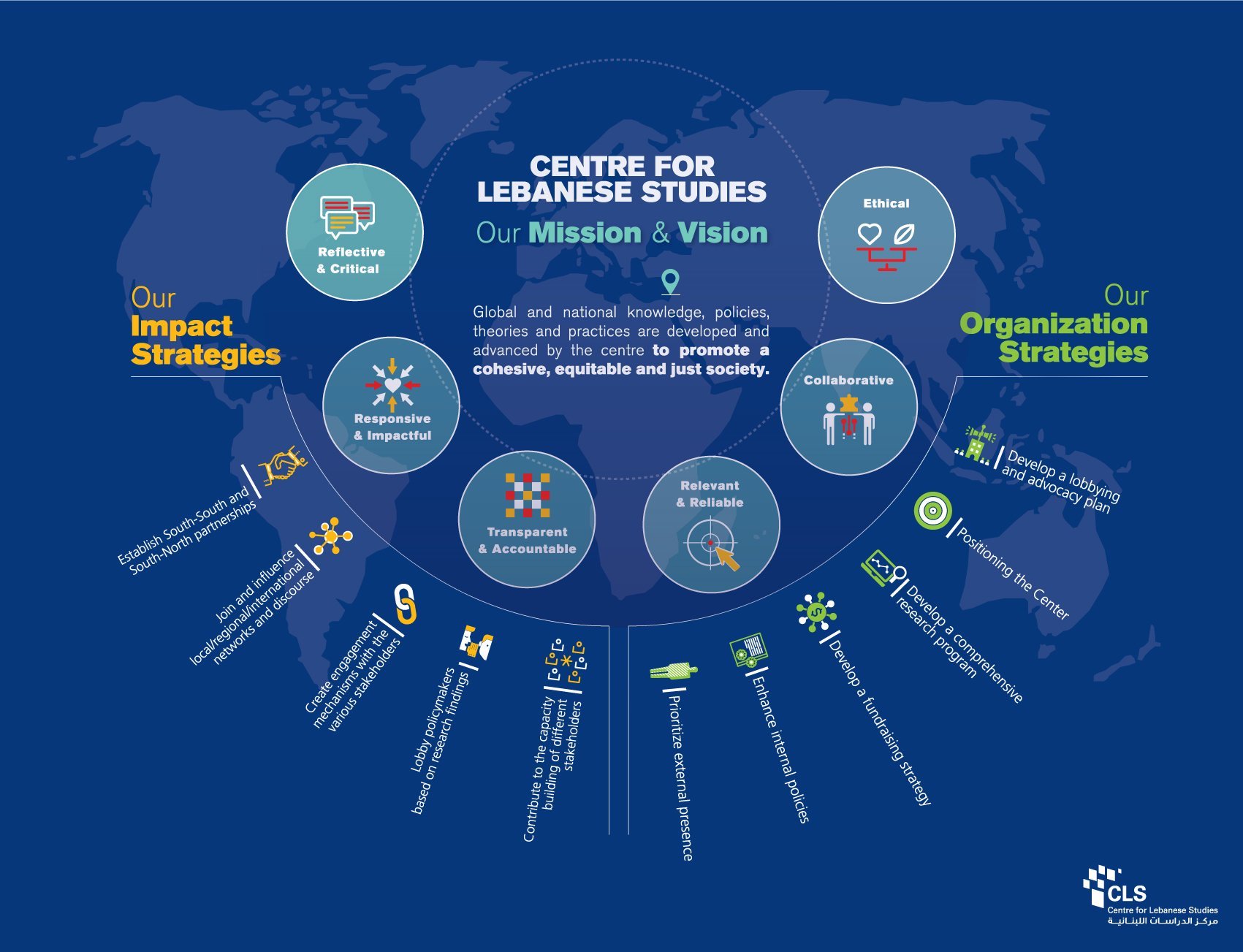Who We Are
The Centre for Lebanese Studies (CLS) is an independent academic institution established in 1984 to undertake impartial and balanced research and contribute to Lebanon’s development. CLS is affiliated with the Faculty of History at the University of Cambridge and works rigorously in conducting research and organizing conferences that address key issues in Lebanon. In 2012, CLS opened an office in Lebanon. CLS has a presence in Beirut and Cambridge, and while it undertakes research in various countries around the world, it focuses on Lebanon, Jordan and the UK.
CLS is a registered charity in the UK under registration number 298375 and in Lebanon under 1243 with the legal entity’s name “Education Development Center In Lebanon”.


Our History
The Centre for Lebanese Studies was founded in 1984 by a group of Lebanese living between London, Paris and Beirut who were concerned with the state of affairs in their home country.
Their objective was to set up an independent academic institution that would undertake impartial and balanced research and contribute towards Lebanon’s recovery and long-term stability. They aimed to promote a better understanding of Lebanon and to help find solutions for its problems.
Nearly three decades later, the Centre has achieved international recognition and plays a pivotal role as a focus for academics, journalists, researchers and students. It has become a major international resource for Lebanon.
The Centre for Lebanese Studies’ affiliation to the Middle East Centre at St Antony’s College, Oxford, and the support provided by the late Albert Hourani and other fellows of that Centre is a major factor in its success. A research committee comprising scholars of international reputation advised the Centre on its programme and the late Marwan Buheiry (1984 -1986) and Nadim Shehadi (1986 – 2005) directed the Centre.
In 2012, the Centre for Lebanese Studies opened its office in Lebanon
The Centre owes its accomplishments to the continuing financial support of committed individuals and organisations, public and private, who have funded its activities and have provided it with the freedom and independence required to carry out its work as a Centre of excellence.
Our Vision
We believe in shaping local, national, and international knowledge, policies, theories, and practices that nurture a harmonious, equitable, and just society.
Our team of dedicated researchers engage with stakeholders at all levels to bring this vision to life.

Our Values
CLS is a research center that aims to produce relevant research in a
collaborative, respectful, critical, valuable, equitable and transparent manner.
Relevant And Reliable
Collaborative
Responsive And Impactful
Reflective And Critical
Ethical
Transparent And Accountable

Our Objectives
- To promote better understanding of the national and international issues relevant to Lebanon through the pursuit of independent objective academic research into the political, social, educational, historical, economic, and cultural issues of Lebanon.
- Lobby policy-makers and make recommendations based on research findings in connection with issues facing Lebanon.
- To provide support and information for governments and international institutions in the formulation of their Lebanese and Middle East policies.
- Contribute to the capacity building of different stakeholders.
In Order To Realise These Objectives, The Centre Aims To:
- Highlight relevant and contemporary issues of importance to the future of both Lebanon and its people.
- Play a central role in encouraging the serious study of political, economic, historical, geographic, sociological and cultural issues facing Lebanon.
- Generate and channel ideas that will contribute to stability and sustainable development.
- Create an engagement mechanism with the various stakeholders.
- Join and influence local/regional/international networks and discourse.
- Establish South-South and South-North partnerships
